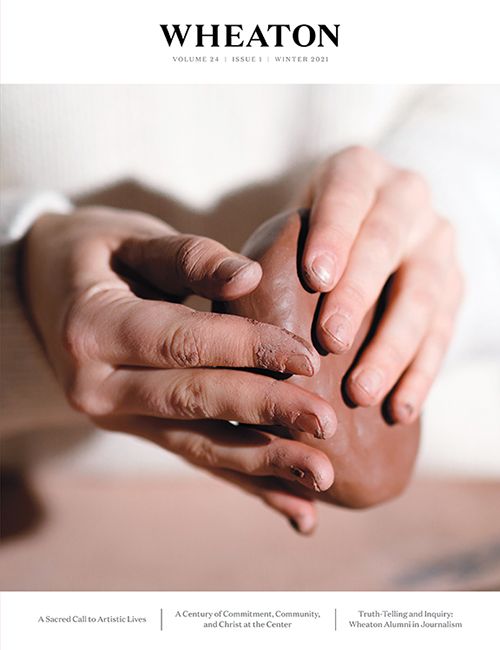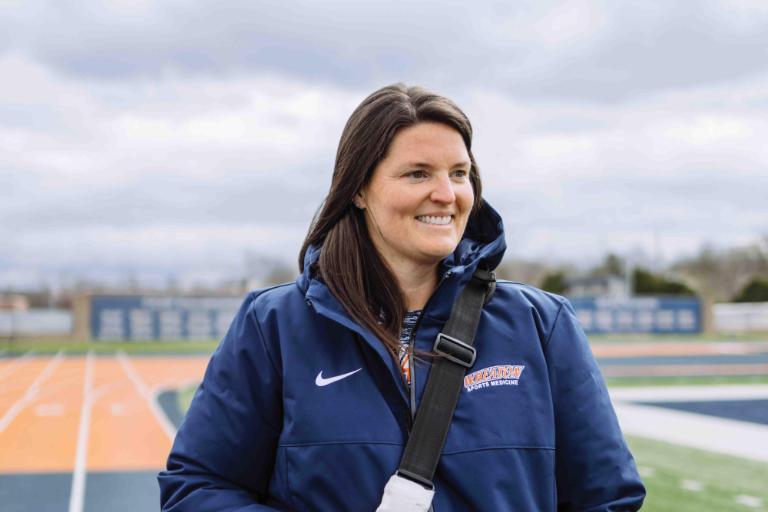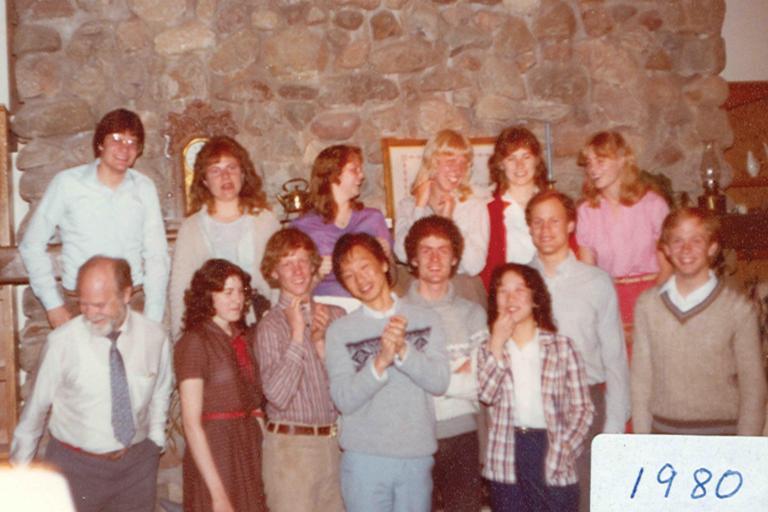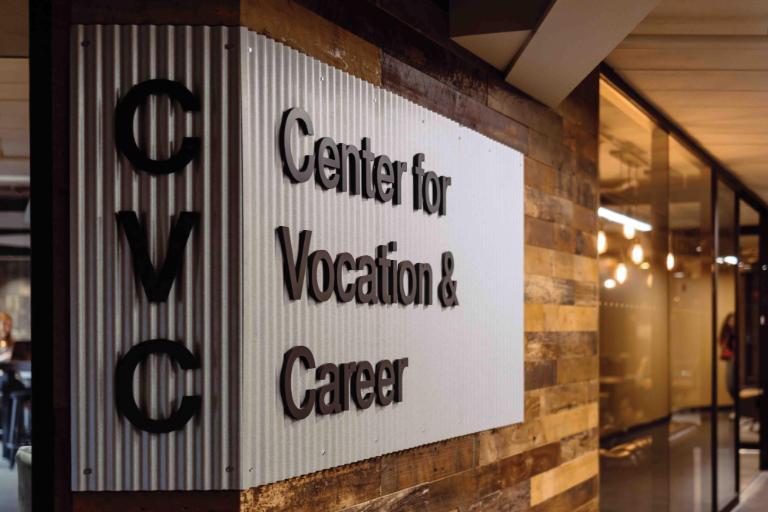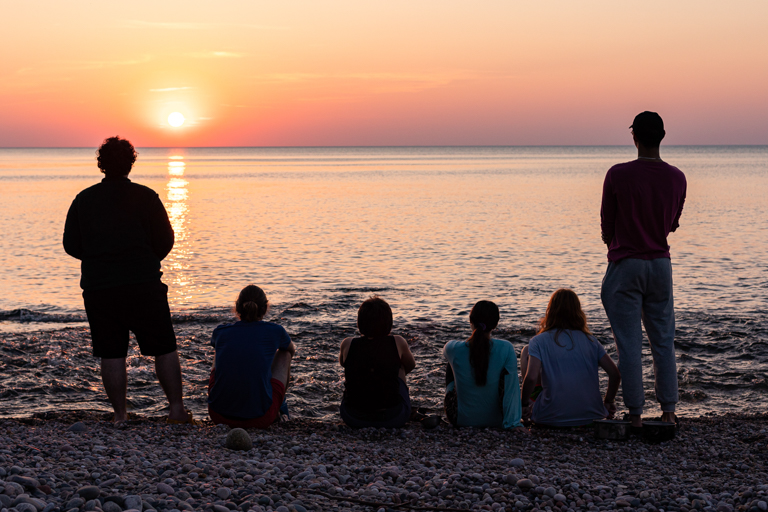A Sacred Call to Artistic Lives
Words: Dr. Michael Wilder, Dean of the Conservatory
of Music and Division of Arts and Communication
Photos: Tony Hughes, Josh and Alexa Adams
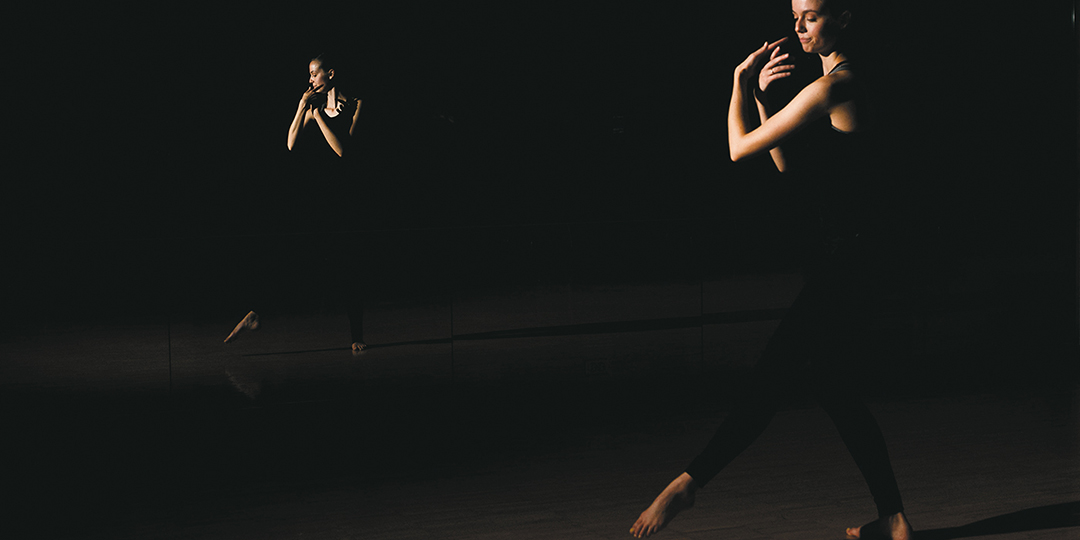
Photo by Tony Hughes
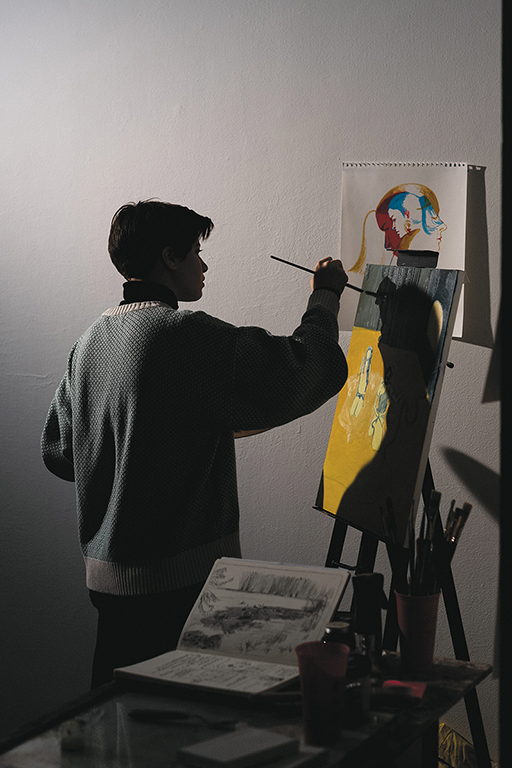
Photo by Tony Hughes
Who would argue against the fact that these are challenging times? Racism, corruption, the pandemic, trafficking, drugs, fires, murder, and violence, all swirling to create a staggering set of world conditions. In the midst of these difficulties, many in our world are experiencing an acute drought when it comes to hope and a future. The conditions are severe and the problems are pervasive. How do we even begin to grapple with the summary of news events as we are assailed each day?
And what does all this awful world news have to do with the arts, higher education, and Wheaton College’s music and arts offerings? If we are brutally honest, might we ask ourselves, “In the midst of these world challenges, how are the arts anything but a self-indulgent denial of the conditions around us?”
How do dancing, acting, painting, and music-making have anything to do with these world events and this terrible drought?
In fact, the arts have everything to do with responding to these conditions. The arts offer opportunities that better enable us to understand and mitigate the immediate conditions before us. The arts commission a uniquely human creativity with which to explore alternatives and perspectives that would otherwise remain hidden and that are essential in wrestling with the challenges we face. In and through the arts, people are invited to engage with others, to taste excellence, and to slip past strictly logocentric boundaries. The arts also allow for the pressing of the pause button, while we directly engage with endless materials and embodied self-expression.
And why is this so important? The best place to start in understanding just who we are may be at the very beginning of the Bible. Among the most precious of God’s gifts is the placing of a creative capacity in each person. The fifth word of Genesis 1:1 establishes this framework, as it reveals God as Creator. We learn later (Genesis 1:27) that in God’s creator-ness, he has embedded his imago dei into each one of us. The result is that every individual, in deeply personal ways, is offered the precious, God-breathed creativity that reflects the very same inventiveness that ignited all of creation. Creativity is woven throughout the fabric of each person, resulting in endless variation and possibility. To create and to be creative lies at the heart of human flourishing.
There are innumerable opportunities to employ this creative capacity in addressing the challenges that surround us. In this article, let us reflect on just a few of those ways: nurturing creativity, muting cacophony, exploring complexity, and collaborating as community, as well as our invitation to love our Creator and our neighbors.
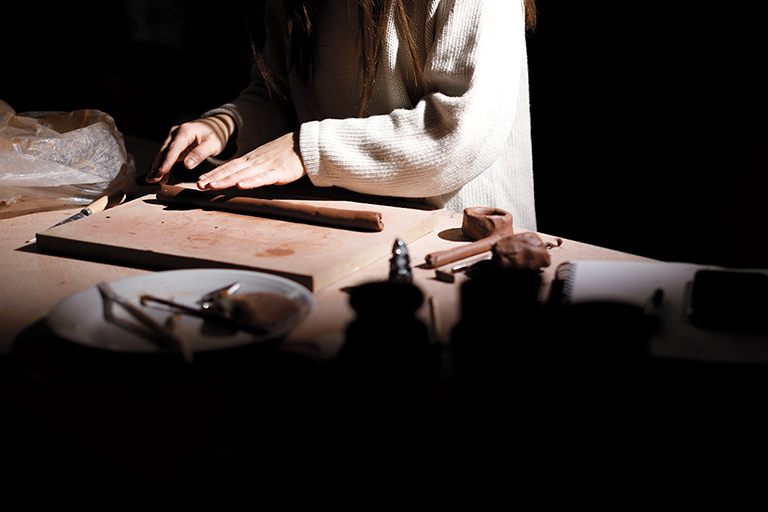
Photo by Josh and Alexa Adams
Nurturing Creativity
Consider our tendency toward dichotomous, either/or thinking, even when addressing complex conditions. We are often tempted toward simplistic analysis and generalized knee-jerk responses. Artistic endeavor invites multiple alternatives, welcomes the perspectives of others, and nurtures creativity. In fact, arts pedagogy often sets up a frame with limitations and then explores possible solutions—lots of them. In visual art, a stage is often set with a “problem” where the painting instructor might limit an assignment to just one color; let’s say red. The student quickly realizes that the color limitation is anything but dictatorial in that she is able to consider not just one or two shades of red, but she also faces a palette of an infinite number of reds!
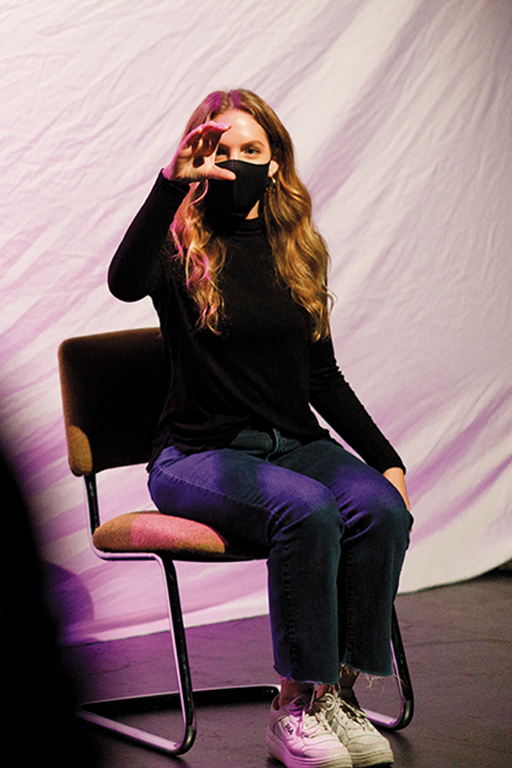
Photo by Josh and Alexa Adams
Muting Cacophony
In the midst of the constant barrage of the world around us, the arts offer respite and the opportunity to lessen the noise. The frenetic pace in our culture, which is filled to overflowing with concern and busyness, is temporarily slowed as we are invited into what can be a deep level of focus and concentration. Psychologist Mihaly Csikszentmihalyi referred to this intense mental state as “flow” and observed that people are capable of complete absorption in a focused mental and creative state. During this season, people desperately need to be nurtured by the expressive beauty and power that is waiting in these havens of sound and sight, as they are set aside from all that concerns us.
Collaborating as Community
Artistic engagement is often rooted in community, with collaboration ranked among the most rewarding and significant of human activities. People join together, striving for that which is beautiful, celebratory, powerful, and inspiring. Consider the activities throughout the world that involve bands, murals, festivals, feasts, choirs, comedy, food, sculpture, and so much more. Working in community builds wisdom and unity, as the collective artistic voice offers evidence of our shared conviction and strength.
Loving Others
The second greatest commandment is to love your neighbor as yourself, and among our most compelling gifts to others are those that are musical. In facing ill health and death, music can minister, heal, and offer deep comfort. Where words and actions may have failed, music offers a new path that can be deeply reflective and encouraging. It is no surprise that in the most poignant moments of life, we often reach to musical means of lament and celebration as we strive to love one another well.
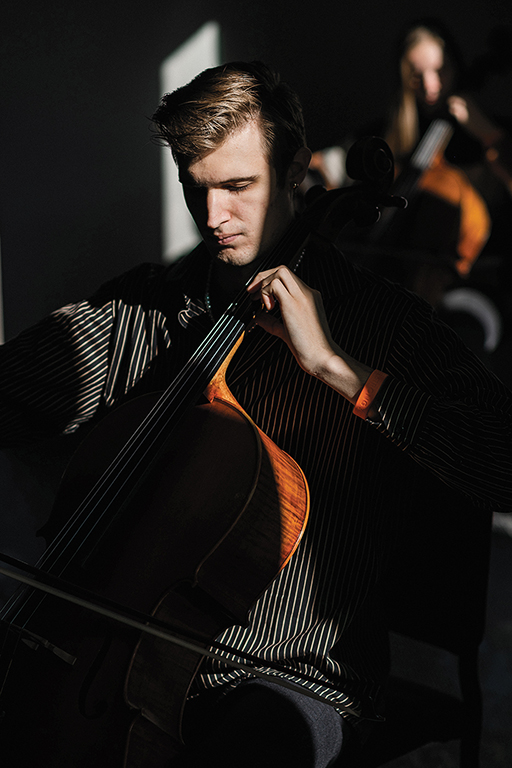
Photo by Tony Hughes
Exploring Complexity
The arts also offer profound opportunities to engage in aesthetically rich activity—attempting to produce something multifaceted and lasting, while also deeply and powerfully communicative. Where life is often filled with mundane tasks, the arts offer an oasis for the exploration and expression of the intricate and complex. As scientists are invited to explore wondrous worlds—as seen through the lens of a microscope or telescope—the arts invite people into worlds of sound and sight that provide an experiential perspective of infinite dimension and possibility. The imagination is unleashed as ideas and creative expression take hold.
Loving the Creator
Our highest calling is contained in God’s command to love him above all else. He intends for us to employ our musical and artistic capacities in this endeavor. Surely it is the highest and ultimate purpose for the arts. Could our instructions be any clearer than those offered in Psalm 98?
4 Shout for joy to the LORD, all the earth, burst into jubilant song with music;
5 make music to the LORD with the harp, with the harp and the sound of singing,
6 with trumpets and the blast of the ram’s horn— shout for joy before the LORD, the King. (NIV)
Why make music? Why make art? Why host these very special endeavors in which we listen, sing, dance, and sculpt, all the while being energized and united? In these interactions, each of us is invited toward that which is true, holy, and redeemed. Every single person is given artistic means and a message that the world desperately needs. We earnestly listen, as we long to hear the very voice of our Maker through each of his children. This is serious work and is needed by each of us and a world that is experiencing an acute drought. You are the cool drink. You are the rain.
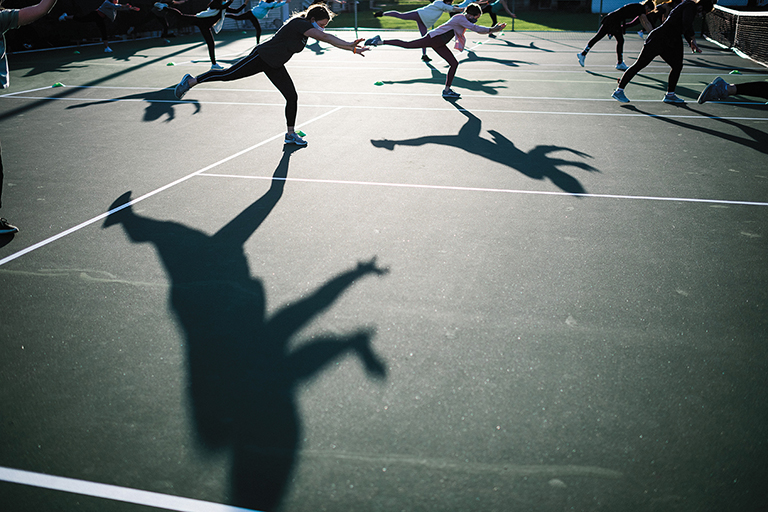
Members of Zoe's Feet Dance Ministry practice on the tennis courts.
Photo by Tony Hughes
This year—a year of great challenge, but also one in which we celebrate all that God is doing in and through us—we pledge ourselves anew to our enduring commitment to serve, love, and challenge each person who is touched by this dear institution. May every Wheaton College student—from the infant enrolled in our Community School of the Arts to the graduate student who has returned to school after her grandchildren are all grown—be gripped by the singular opportunity that God invites us to in faith, imagination, and artistic engagement. May all who might hear—locally and around the globe, from every tribe and tongue—be swept up in the creative capacity of humankind. Francis A. Schaeffer said that “the Christian is the one whose imagination should fly beyond the stars.” May God cause our imaginations to envision a world quite different than the one we see—a world that includes all of his children and offers generous opportunity for creativity and artistic flourishing.
